
Electric Bike for Sales in Canada: Easy Green Commuting
Using environmentally friendly transportation options, including e-bikes, is essential to reducing carbon emissions and moving society toward a brighter future. Electric bikes preserve the efficiency and mobility of a normal bicycle while providing the additional benefit of an electric motor. Rechargeable batteries power e-bikes, which make cycling simple and readily available to a variety of people. When in use, electric bikes produce no emissions that lower carbon emissions, and slow global warming. Additionally, they can travel through traffic more rapidly and take up less space on the road, which helps relieve metropolitan areas of traffic congestion. E-bikes promote an active lifestyle and fight sedentary behaviors by providing better health and well-being, time and money savings, and convenience. In addition, they provide last-mile connectivity to bus stops, filling in any gaps in transportation and reducing the need for personal vehicles for short trips. We can construct greener, healthier, and more sustainable cities by supporting electric bikes and creating policies and infrastructure to encourage biking. We can improve the earth and give a better future for future generations if we work together.
The Need for Sustainable Transportation: Easy Green Commuting
Modern society needs eco-friendly transportation because conventional means are bad for the environment, the general public's health, and the quality of life.
- Understanding the Environmental Impact of Traditional Transportation: Traditional transportation uses fossil fuels, which results in air pollution and greenhouse gas emissions. These emissions contribute to environmental problems like extreme weather and air pollution, as well as climate change and global warming.
- Addressing Air Pollution and Climate Change: The Earth and future generations are at serious risk from climate change. Ecologically sound transportation options, like electric bikes, can greatly lessen the effects of climate change on ecosystems and communities. We can enhance public health and air quality by switching to environmentally friendly transportation.
- Sustainable mobility promotes energy efficiency, safeguards natural resources, and preserves biodiversity, all of which are essential elements of the aims of sustainable development in green commuting. Electric bikes promote sustainable lives by reducing the consumption of fossil fuels, preserving energy from renewable sources, and preserving energy.
By embracing environmentally friendly solutions like electric bikes, this strategy decreases the carbon footprint, enhances air quality, and promotes sustainable development. The environment, public health, and a secure future for future generations all depend on the importance of sustainable mobility. We aid with promoting sustainable mobility by providing different electric bikes with Powerful Motor for you to purchase. Wonder why you need an electric bike in Canada? Read our post about 5 reasons to buy an e-bike.
Introducing Electric Bikes
Before getting electric bikes for sale from the menu above, note that electric bikes transform mobility by offering eco-friendly, ground-breaking, and environmentally sustainable alternatives to traditional bicycles that is by blending conventional components with state-of-the-art electric technology.
- Examining the Idea of Electric Bikes: Electric bikes, which offer more power and make cycling easier, are essentially bicycles with an electric motor and rechargeable battery. They need to pedal and support human effort, providing a smooth and efficient riding experience.
- How Electric Bikes Differ from Regular Bicycles: Although electric bikes seem identical to traditional bicycles, some major changes improve the riding experience.
- Electric Assist: What distinguishes e-bikes from other bicycles is the electric assist feature. By enhancing force and assisting the user in pedaling, the motor enables comfortable, individualized riding experiences. The motor is powered by rechargeable batteries that have a range of different power outputs.
- Control and Display: Electric bike handlebars frequently have a control panel that enables riders to use speedometers, odometers, and navigation systems, monitor battery levels, alter assistance settings, and access extra features.
- Weight and Design: Because the electric motor and battery are built into the frame, e-bikes tend to weigh a little bit more than standard bicycles. A smooth, nimble ride is now possible because of technological advancements that have led to designs that are lighter and more streamlined.
- Understanding Electric Assist Technology: The electric assist technology sets e-bikes apart and enhances the riding experience. The electric motor assists the cyclist in several ways by adding more force when they pedal. Pedal-assist systems on e-bikes allow users to change power modes and terrain by starting the engine when the pedals are depressed.
- Systems with throttles allow for motor activation without the need for pedaling, giving you immediate power support.
By enabling longer distances and difficult terrain, these electric assist devices improve bicycle accessibility and encourage environmentally friendly, green transportation solutions. There could be regional restrictions and rules.
The Eco-Friendly Aspects of Electric BikesWith environmentally friendly characteristics, electric bikes offer sustainable, ethical transportation. Green commuting and stress-free transportation made easy.
- Zero Emissions: Due to their zero-emission operation, electric bikes provide environmental benefits by reducing carbon dioxide and greenhouse gas emissions. Electric bikes provide a cleaner environment by having no exhaust emissions, in contrast to traditional vehicles.
- Energy Efficient: When compared to cars with internal combustion engines, electric bikes use considerably less energy because of their high energy efficiency. They reduce energy usage and the demand for fossil fuels by converting a sizeable part of battery electricity into mechanical power. Lower overall energy use and less reliance on fossil fuels are the results of this.
- Noise Reduction: Electric bikes provide a quieter ride than cars with internal combustion engines, decreasing noise pollution and fostering quiet areas. Riders and others around them benefit from the absence of engine noise, which is advantageous for both parties.
- Lessened Congestion: By lowering the number of cars and lowering congestion, electric bikes help lessen traffic congestion in urban areas. Riders can maneuver around congested locations more quickly and open up road space for short- to medium-distance trips thanks to their greater agility and smaller footprint than cars.
- Less Dependence on Cars: Electric bikes offer a sustainable alternative to driving for short-distance commuting and errands, reducing traffic congestion and pollution. Utilizing e-bikes for regular tasks like errands, work, and grocery shopping encourages environmentally friendly transportation and reduces global carbon emissions.
- Lifecycle Considerations: Throughout their entire lifespan, electric bikes have less of an environmental impact compared to those traditional vehicles.
Adopting electric bikes as a sustainable method of transportation encourages environmental preservation due to their zero emissions, energy efficiency, noise reduction, reduced congestion, and less dependence on autos, encouraging a cleaner, healthier future.

E-bikes change travel habits and advance sustainable mobility by providing ecologically favorable, eco-friendly transportation solutions for daily commuting.
- Benefits for Daily Commutes: Electric bikes are a terrific alternative for environmentally responsible transportation due to their numerous benefits for regular travel.
E-bikes have advantages for your health and fitness, such as quicker commutes, lower costs, and low-impact exercises. They can be more affordable than automobile gasoline or public transit because they avoid parking and traffic congestion. Electric bikes have a smaller environmental impact than regular cars as they don't produce exhaust emissions, which worsen air quality and contribute to climate change. Overall, commuting on an e-bike is practical and environmentally friendly.
- Enhancing Last-Mile Connectivity: When it comes to transportation gaps, electric bikes are especially adept at bridging the last mile of connectivity. The last mile of a commute is the distance between the final destination and the transit stop. E-bikes provide a useful and efficient way to cover these short distances.
- Ecologically friendly work commutes: Using an e-bike increases productivity, employee well-being, stress reduction, mental health, job satisfaction, and work-life balance. Promoting e-bike use in office buildings decreases traffic, parking needs, and infrastructure usage, improving the environment at work. Supporting eco-friendly transportation options, reducing carbon emissions, and promoting green business practices are all examples of corporate sustainability.
- Promoting Active Lifestyles: In addition to offering electric support for daily travel, e-bikes promote an active lifestyle by giving people with physical limitations access to chances for fitness and exercise. By providing leisurely rides, sightseeing, and outdoor activities, they also encourage discovery and recreation. Electric bikes offer environmentally friendly, cost-effective, and healthy ways to commute that can increase connectivity and support worker wellbeing. Did you know that we offer electric bikes for sale in Canada? We have a wide range of satisfied customers who have already made the switch.
To provide safe and sustainable transportation while taking into account elements like safety, environmental impact, and legislation, the integration of e-bikes requires the right infrastructure and policies:
- Bike-Friendly Infrastructure: To encourage safe cycling and the use of e-bikes, cities, and municipalities should make investments in bike-friendly facilities such as designated bicycle paths, multimodal connections, and cycle-friendly traffic lights.
These precautions increase safety and reduce collisions involving bikes, pedestrians, and cars. Longer excursions can also be encouraged by combining e-bikes with public transportation, bike parking spaces, and bike-sharing schemes. The flow of traffic can also be improved with synchronized traffic lights and signal phases, which give bicycles priority and lessen conflicts.
- Charging Infrastructure: E-bikes need easy access to charging stations, such as those found in prominent sites like shopping centers and transit hubs. Regular electrical outlets or specific connectors are available for charging at these stations. Riders can replace dead batteries with fully charged ones using battery swapping systems, which reduces charging times and allows for longer rides without worrying about the battery's life.
- Promoting E-Bike Adoption: By offering financial incentives, taking into account insurance and liability issues, and establishing regulatory frameworks, governments may promote the use of e-bikes. Financial incentives can lower the cost of e-bikes, increasing their accessibility and uptake. E-bikes should be covered by insurance to protect riders in the event of accidents or theft. Regulatory frameworks should provide clear principles and standards for e-bike usage, supporting peaceful relations among users, pedestrians, and road users while ensuring safe and responsible operation.
- Education and Awareness: Increasing public understanding of e-bike usage and etiquette is essential for their seamless incorporation into transportation systems. Initiatives for education include training programs, the sharing of best practices from communities and organizations, and teaching riders safe riding behaviors. Through these measures, we can encourage safe riding practices, ecologically friendly transportation, and a greener, healthier future. We can also support bike-friendly infrastructure, legislation, and awareness.
Overcoming Challenges and Misconceptions
Even though electric bikes, also referred to as "e-bikes," are gaining popularity and offer some benefits, there are still issues and misconceptions that need to be cleared up. You can promote e-bike use and enhance sustainable transportation by dispelling common e-bike myths and concerns.
- Safety Issues: The safety of e-bikes is an issue that impacts riders as well as other road users. E-bike riders need to address traffic regulations, signaling, and safe riding practices. A thorough educational campaign can promote wearing bright clothing, proper lighting, and understanding. Sharing the road and raising awareness among motorists, cyclists, and pedestrians encourage safer interactions and a calmer atmosphere on the roads.
- Range Anxiety: The fear that the battery will die when using an e-bike is known as range anxiety. Conquering this fear can increase bikers' confidence and encourage longer rides.
Riders' expectations and worries about power disruptions are reduced by more robust, long-lasting batteries made possible by advances in battery technology. While user-friendly battery range displays assist riders in monitoring levels, adjusting travel schedules, and making educated decisions, networking charging stations offer easy access to regular recharging possibilities.
- Fostering societal Acceptance:
Due to its novelty in some areas, e-bike use is stigmatized by society and is the subject of misconceptions. By clarifying myths, fostering productive debate, and increasing understanding, advocacy, and community participation, we can alter the public's image. Stereotypes may be destroyed, environmentally responsible transportation promoted, and a supportive community created by introducing different riders and establishing an e-bike culture.
The Role of Electric Bikes in Sustainable Cities
Cities throughout the world are working hard to improve the quality of life for their residents by implementing more environmentally friendly policies. Electric bikes, sometimes known as e-bikes, have emerged as an important component in encouraging sustainable urban transportation. They have a tremendous impact on the future of green cities.
- Lowering Carbon Emissions: One of the primary advantages of e-bikes is their capacity to lower carbon emissions. E-bikes encourage greener mobility, the reduction of air pollution, and the mitigation of climate change by substituting short- to medium-distance trips with electric ones.
- Decreased traffic congestion: E-bikes improve agility and maneuverability, which decreases the demand for parking and the inconvenience it causes for commuters and short journeys.
- Supporting Healthy and Active Lifestyles: Active transportation choices, such as e-bikes for low-impact exercise, are prioritized in sustainable cities for healthier lifestyles. These options also reduce sedentary-related diseases, enhance fitness, and support cardiovascular health. Promoting these modalities helps to maintain a healthy urban culture.
- Improving Accessibility and Inclusivity: By providing a variety of mobility options, e-bikes improve accessibility and inclusivity in urban settings. They encourage independence and social inclusion by making it possible for people who have physical restrictions to travel and cross difficult terrain.
- Promoting Effective Urban Service Delivery: E-bikes have a big impact on urban services and delivery, encouraging environmentally friendly last-mile delivery solutions and lowering carbon footprints. They promote sustainable logistics and urban sustainability goals by reducing transportation congestion and costs.
- Supporting an Interactive and Livable City: By providing quick, practical transportation and simple access to places of employment, education, healthcare, and recreation, e-bikes enhance the livability and connection of cities. For integrating e-bikes in sustainable cities, lowering emissions, increasing mobility, improving public health, and enhancing the quality of life, supportive infrastructure, cycling rules, and public awareness are essential.
The Future of Electric Bikes and Sustainable Transportation
The use of electric bikes also referred to as "e-bikes," has increased recently and seems to be trending upward in terms of sustainable transportation. Looking ahead, the following developments and trends will have an impact on how e-bikes evolve and contribute to the creation of a more sustainable transportation system:
- Technological innovations: Through improvements in battery technology, electric motor technology, and smart features like app connectivity, GPS navigation, and integrated sensors, e-bike technology will enhance the user experience, performance, and efficiency. Smaller, lighter, and higher-capacity batteries will result from these developments, as will longer ranges, quicker charging times, and better battery life. With real-time data on battery status, performance indications, and safety alarms, smart features will improve usability and usefulness.
- Infrastructure Development: Supportive infrastructure, such as extended networks of bike lanes, easily accessible charging stations, and safe parking places, is essential for the success of e-bikes in the future. These upgrades encourage more people to utilize e-bikes as a dependable method of transportation by promoting easy and safe riding routes, lowering range anxiety, and giving e-bike owners peace of mind.
- Policy Support and Integration: The success of sustainable mobility depends on supportive policies and their integration into urban planning.
Governments and towns can promote the use of e-bikes by providing financial incentives, integrating public transportation, and implementing bike-sharing programs. To promote more a connected and sustainable urban environment, urban planning should place a high priority on sustainable transportation, with a particular emphasis on cities that are bike- and ped-bike friendly and have e-bike infrastructure. According to Mordor Intelligence (2023), "Canada's E-bike Market is projected to register a CAGR of 5.65%." Also, according to Grand View Research (2021), "Canada's e-bikes market size was estimated at USD 733.4 million in 2022 and is expected to grow at a compound annual growth rate (CAGR) of 12.6% from 2023 to 2030.”
- Collaborative Mobility: With e-bike sharing schemes, which let individuals borrow and rent electric bikes for brief durations, boosting sustainable mobility, relieving traffic congestion, and lowering air pollution, e-bikes have a promising future.
- Cultural changes: E-bikes and green mobility will likely be favored by a societal trend toward sustainable lifestyles due to environmental concerns, health advantages, and practicality. To highlight the benefits of e-bikes, educational programs, and community involvement are essential. Greener, healthier, and more habitable cities will result from technological improvements, improved infrastructure, supportive policies, and a move toward sustainable mobility. A few details on electric bikes as city transportation right here.
Conclusion: Embracing Eco-Friendly Electric Bikes for Green Commuting
In terms of green transportation, e-bikes hold great promise for lowering carbon footprints, reducing air pollution, and enhancing urban mobility. Electric bikes improve fitness levels, enhance well-being, and provide health advantages. However, barriers and misconceptions need to be dispelled to promote greater use. Safety considerations, knowledge, and ethical riding methods can all help to lessen range anxiety. Range anxiety may be lessened by improvements in charging systems, battery technology, and precise range displays. A welcoming e-bike community, advocacy, and showing riders of all backgrounds can all help to increase social acceptance. As e-bike adoption increases, sustainable cities, and a greener world will be promoted through technological advancements and policy integration. People may help reduce carbon emissions, improve air quality, and create healthier communities by selecting e-bikes. Hello there! We are excited to inform you that we currently have amazing offers and free delivery services at your disposal. In case you're considering purchasing an electric bike, all you have to do is click on the link to get electric bikes for sale in Canada right here. If you're staying in the US, we have a warehouse there. For further details, visit Tesgo US.
We are here to assist you with all your post-sales needs.
Newletter
Promotions, new products and sales. Directly to your inbox.
Lastest Blog Post


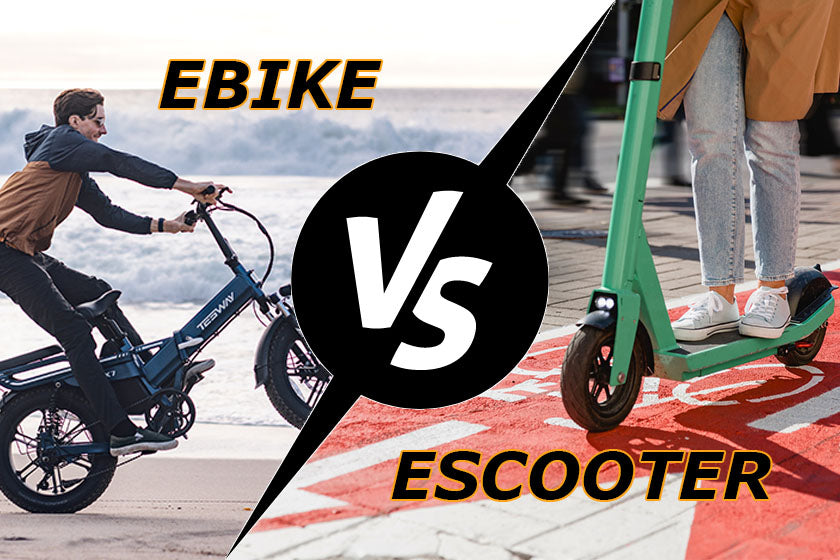







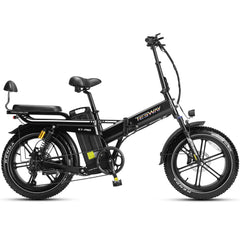

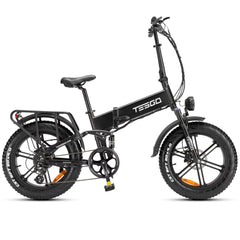
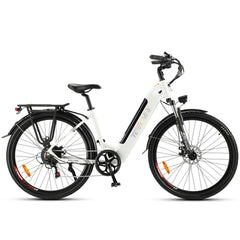


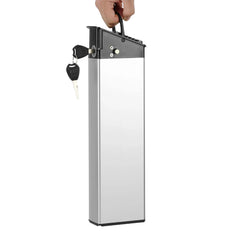


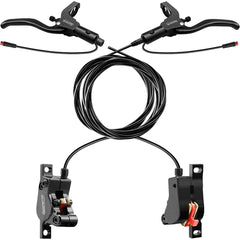



 US
US










